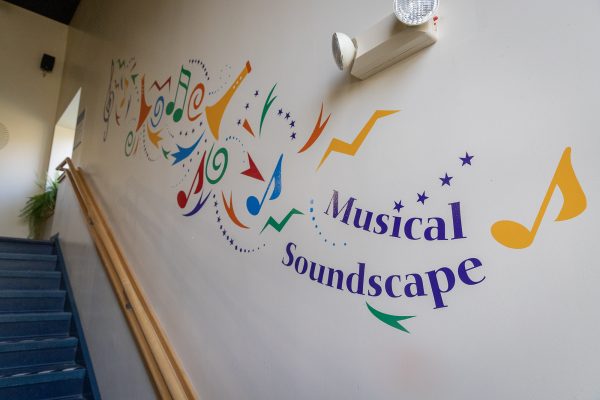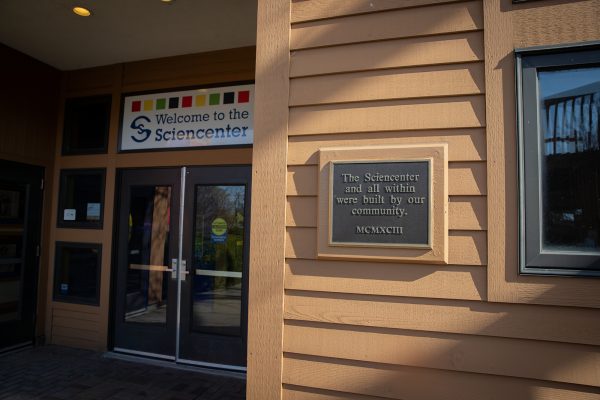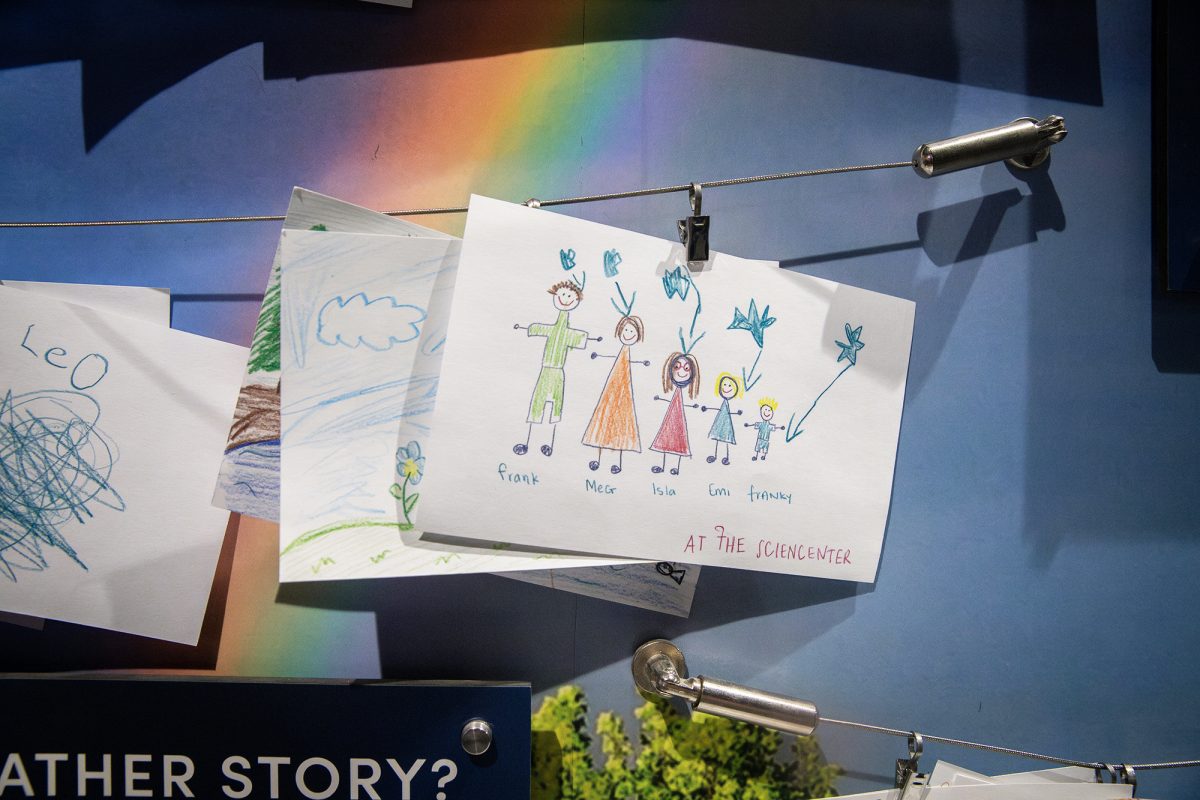The colorful hands-on learning exhibits that live within the Ithaca Sciencenter have lost $400,000 in essential aid from the Institute of Museum and Library Services. Now, the Sciencenter is forced to adapt so it can still provide science education to community members of all ages.
On April 10, the Sciencenter was notified via email addressed to the project directors at the Sciencenter that two of its grants from the federal government through the IMLS would be terminated. The grants totaled $500,000. At the time of termination, the Sciencenter had only spent about $100,000 of the grants, so the remaining money was pulled.
This loss of grant funding is part of a larger movement by the federal administration: In a March 14 executive order, President Donald Trump began the process of eliminating the IMLS. Since then, it is estimated that over 1,000 grants have been canceled.
Ryan Opila, grants manager for the Sciencenter, said about a third of the center’s $3 million annual budget comes from grants. He said the Sciencenter receives grants from NASA, the National Science Foundation and the National Institute of Health, and he fears the potential loss of those grants in the near future.

Opila said projects — including enhancements to the outdoor science park and a partnership with libraries across the Finger Lakes region to provide science kits to rural areas — are hindered because of this loss of grant funding.
“These federal grants are ways that the Sciencenter can look to grow and expand on promising partnerships and pilot projects that are addressing real needs in our community in new ways or addressing emerging needs,” Opila said. “Those needs aren’t going away with these projects being canceled, but we don’t have the money to work on them without [funding], unfortunately.”
Michelle Kortenaar, executive director of the Sciencenter, said that in addition to funding projects, the grants keep the Sciencenter operational.
“Grants provide indirect cost recovery,” Kortenaar said. “You negotiate how much money it takes to keep the heat on and the exhibits working, and you bake that in. So we’re losing funding that pays for some salaries. We’re losing funding that helps to keep the lights on.”
Also located in Ithaca, the Paleontological Research Institution and Museum of the Earth have lost an IMLS grant, as well. Warren D. Allmon, director of the PRI, said the IMLS grant was being used for coral research and collections to help study climate change. Only a third of the $100,000 grant was used when the PRI received the termination notice.
“The loss of IMLS grants is so devastating because it’s going to hit the places that could afford it the least,” Allmon said. “It’s going to hit harder for small places like us and the Sciencenter.”
After already facing the possibility of closure at the beginning of January 2025, the grant funding loss for the Museum of the Earth is only part of the institution’s concerns. However, an extension on the time frame to pay the mortgage is keeping the museum afloat, and a new temporary exhibit on mollusks — funded by a past IMLS grant — is opening May 30.
Even with federal pressure, Kortenaar said the Sciencenter is appealing the decision. Throughout the appeals process and beyond, Kortenaar said she hopes community members and college students continue to take action on a local level but in their home towns as well.
“If [students] are concerned about the dismantling of funding from museums and libraries, they should call their local congressmen and senators as well, because we need our voices heard,” Kortenaar said.
Jennifer Spitzer, associate professor in the Department of Literatures in English at Ithaca College, said she has taken her 12-year-old son to the Sciencenter since he was 4 years old. She said she is always amazed by the offerings, including the popular musical staircase.

“My son is very physical and tactile [and] there’s room to run outside and interact with everything from musical instruments to climbing equipment,” Spitzer said. “There are specifically places for interaction, engagement and learning through touch and sound and history. So I think that made a big impact, and it was just very social for him.”
Spitzer said the funding cuts to local educational facilities made by the Trump administration are part of the dismantling of higher education and the ecosystems that surround it.
“I think it is a way to de-educate the next generation,” Spitzer said. “Because I very firmly believe, and I think every political scientist and scholar is saying so, that an authoritarian regime wants an uneducated and uninformed populace to be more malleable.”
Spitzer said the Sciencenter was even open during the COVID-19 pandemic, and provided relief from isolation. Kortenaar said that as soon as it was permitted, the Sciencenter reopened, and people were there every day.
“Even when you weren’t supposed to leave your house unless it was essential, there were people at the Sciencenter,” Kortenaar said. “We are essential in this community. We are a place where families can have joyful experiences with their kids in a safe and educational environment, and that’s a critical resource.”
Adrienne Testa, director of exhibits and facilities at the Sciencenter, said she builds exhibits that travel across the country to provide science education. Testa said she hopes people of all ages — including college students who can enjoy the mini golf — visit the Sciencenter.
During this financial downturn, the Sciencenter will remain open but will rely on visitors and donations to provide services to the community. The Sciencenter is currently open 10 a.m. to 5 p.m. Tuesday through Sunday. Kids under 2 years old can visit for free and general admission is $12.50 per person.
“The Sciencenter was built by the community for the community,” Testa said. “We have a plaque outside because it truly was a labor of love. Now, we need that support from our community again, so if people can come visit, it will make a big difference.”











